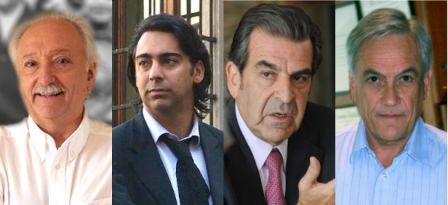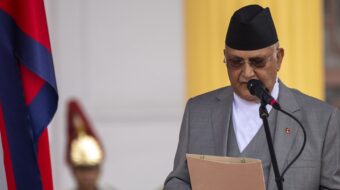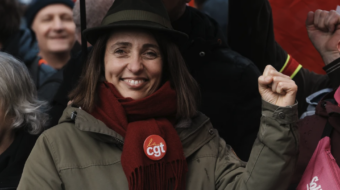
Presidential and congressional elections on Dec. 13 were bad news for the Chilean left and working class. Sebastián Piñera, presidential candidate for the right wing Alliance for Chile coalition took 44 percent of the votes. Former President Eduardo Frei, running for the left – center Concertación, gained barely 30 percent of the six million votes cast. President Michelle Bachelet, Concertación victor in the 2006 elections, remains hugely popular, but was forbidden from running for a second consecutive term by the constitution.
The Concertación has controlled the presidency since 1989 when dictator Augusto Pinochet stepped down. No previous Concertación candidate has achieved less than 45 percent in first round voting. Frei himself had won 58 percent of first round voters in 1993.
In a surprising third place, former Socialist Party member Marco Enríquez-Ominami, who earlier had broken from the Concertación, obtained 20 percent of the vote. The energetic, 36 – year candidate, son of an assassinated guerrilla leader, had disparaged the Concertación leadership as tired, old and threadbare.
Jorge Arrate, candidate of the Juntos Podemos Mas (Together We Can Do More) coalition comprising the Communist Party, the Christian Left Party and other nonelectoral parties and movements, gained 6 percent of the votes, an improvement from previous coalition outings. Arrate, a former cabinet minister in Concertación governments, ran on a program calling for a new constitution, renationalization of copper mining, an end to indigenous repression, and protection of human rights.
Billionaire Sebastián Piñera, an airline and media mogul who flew his own helicopter to campaign stops, is favored to win a run-off vote set for Jan. 17. He benefits from divisions plaguing the Chilean left. A win would make him the first right winger elected president since 1958 and end the Concertación’s 20-year hold on power.
Piñera promised six percent economic growth and corporate tax breaks. The Concertación lost votes to a left disenchanted by what looked like the Bachalet government’s stinginess in distributing copper earnings to social programs and its failure to beef up education and health care.
Enríquez-Ominami denounced “cruel market forces” represented by Piñera, but overall articulated an ambiguous program. Never, however, had a candidate outside Chile’s two main voting blocks scored as well in a presidential vote. Afterwards Enríquez-Ominami refused to ask disenchanted Concertación partisans supporting him to back Frei in the second round. The choice is “between two men of the past,” he opined. Reaching out to Enríquez-Ominami voters, Piñera promised, “We will adopt many of Marco’s proposals.”
The finding just weeks before the election that Frei’s father Eduardo Frei Montalva, another former president, had been poisoned in 1982 after a hernia operation, presumably by Pinochet operatives, served as a reminder of Chile’s cruel past.
The right’s hold on “economic, financial, cultural, and media power” portends a Piñera run-off victory, according to www.rebelion.org. Leftist observers say such an outcome would create an opening “to the geopolitical interests of Washington.”
Voting for the Chamber of Deputies resulted in a near tie between a list combining Concertación and Juntos Podemos voters and Piñera’s Alliance for Chile, with the Concertación ultimately losing chamber control. Piñera’s coalition now commands 17 out of 38 Senate seats leaving the Concertación with a slight majority.
The defeat of rightist Valparaiso Senator Joaquín Lavín was unexpected. His Independent Democratic Union Party, friendly to the Pinochet legacy, weighs heavily in the national Congress with 36 deputies and nine senators.
Left forces took encouragement from the congressional victories of three Communist Party candidates, including party President Guillermo Teillier, its secretary general Lautaro Carmona and human rights lawyer Hugo Gutiérrez. They will become the first Communist members of the Chamber of Deputies since 1973.
Running as an independent, Rodrigo García Pinochet, grandson of Augusto Pinochet, took only ten percent of the votes cast in an upscale Santiago district for a Chamber of Deputies seat. Maria Isabel Allende Bussi, daughter of ousted President Salvador Allende, won a Senate seat.
Meanwhile, as Concertación forces gird for the runoff, theologian Jaime Escobar of the Christian Left Party told teleSUR that a big effort is required to confront “the capitalist and neoliberal model included in Sebastián Piñera’s plans.” The notion of “everyone to the table” is not included, he added.
Photo: Chilean presidential candidates, from left to right, Jorge Arrate, Marco Enríquez-Ominami, Eduardo Frei, Sebastián Piñera. Wikimedia












Comments